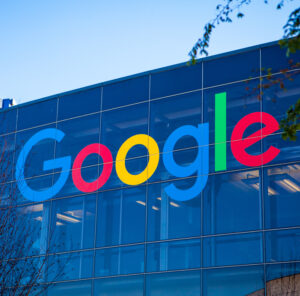“Data-Driven Thinking” is written by members of the media community and contains fresh ideas on the digital revolution in media.
Today’s column is written by Michael Benedek, CEO of Datonics.
In a recent terrorism advisory bulletin, the Department of Homeland Security increased levels of concern for potential violence against LGBTQ, Jewish and migrant communities from extremists in the United States. The shooting at an LGBTQ bar in Colorado is just one recent example of the anticipated violence.
According to a recent report from the Senate Homeland Security Committee, social media platforms are not doing enough to address the growing threat of domestic terrorism. Content moderation teams – if they exist – have a hard time keeping up.
Twitter offers a good case study on what can happen if content moderation standards are lowered. A new report finds that hate speech on Twitter “is soaring” following Elon Musk’s acquisition. And though Ye, formerly known as Kanye West, was suspended for posting an image of a swastika inside a Star of David, unchecked hate speech abounds on the platform.
This puts advertisers in a unique position of power.
It’s now more important than ever for brands to have strong ethics and flex their ad dollar muscles. They must demand that social media platforms do all they can to rein in hate speech and insinuations of violence on their platforms.
Brand response matters
Brands and corporations have the power to draw hard lines on what they will and will not tolerate on social media. Following Musk’s purchase of Twitter, the brand response was swift as it became more evident that content moderation would not be a top priority. In the weeks following the acquisition, more than a third of Twitter’s top 100 marketers stopped advertising on the social media network.
Another case in point is the strong brand response against recent antisemitic hate speech from Ye, formerly Kanye West. Adidas, GAP, Balenciaga, CAA, MRC Entertainment, TJ Maxx and Foot Locker all canceled their partnerships with him, costing the artist billions in endorsements. The brands’ decisions had a massive impact, demonstrating the power they have to condemn hate speech.
Kyrie Irving is another big name guilty of hate speech. He recently shared a highly antisemitic movie with his 17.5 million Instagram followers. Initially, the NBA issued a statement that did not even name Irving. Then, after some time, the Brooklyn Nets made a decision to suspend him for “no less than five games.” This call came after Irving publicly refused to acknowledge the negative influence he was having on his followers.
Though the NBA and the Nets had a delayed, timid reaction, others in the sports world seized the opportunity to condemn antisemitic speech.
One of the most notable denunciations came from Robert Kraft, the Jewish owner of the New England Patriots. His organization – the Foundation to Combat Antisemitism – sponsored an advertisement encouraging people to denounce hate against Jewish people. The “Stand Up to Jewish Hate” ad recently aired during NFL games.
Ethics are good for business
There is a reason why we’re seeing mass responses to hate speech from top brands. For one thing, antisemitism is on the rise. Scott Galloway points out that though they make up 2% of the US population and only 0.2% of the world’s population, “Jews are, year after year, the target of more anti-religious hate crimes than any group.”
And there’s another reason brands are taking action. Increasingly, price is no longer the only priority for most consumers. Rather, they are interested in buying from brands they feel are doing their part to do some good in the world.
Standing up to hate speech isn’t just good ethics. It’s good business.
Studies have shown that consumers are more likely to buy from socially conscious brands. For example, a recent study by UM found that purchase intent more than doubled when socially conscious brands engage advertising media partners that share common values. The study also found that when a brand embodies integrity, sustainability and equity, there is a 75% increase in purchase intent.
In a world where there are no boundaries for spreading influence, advertising needs to lead the rally for “drawing the line” and ensuring that those spewing hate speech are being held accountable.
Follow Datonics on LinkedIn and AdExchanger (@adexchanger) on Twitter.














